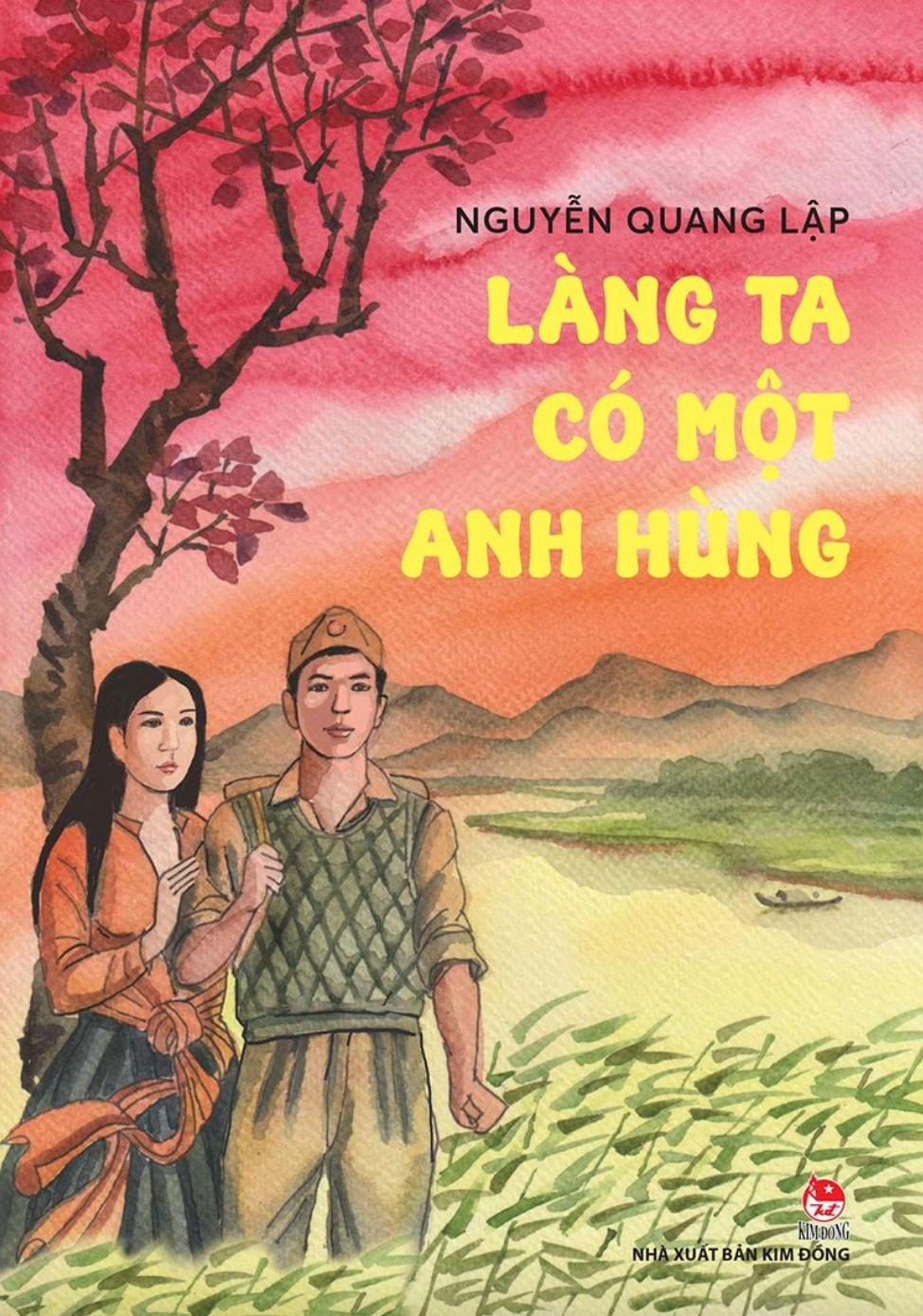The 16-chapter book, with an epilogue, published by Kim Dong Publishing House, tells the story of the young spy. Each chapter begins with a question posed by the author to 90-year-old Mai Thi Le, who acts as a narrator, recounting memories of her youth with Nhan, her childhood friend and sweetheart. Throughout the book, Le addresses Nhan affectionately as "em" (younger sibling), reminiscing about their shared past.
 |
“Our Village Had a Hero”, published by Kim Dong Publishing House, nominated for the first Kim Dong Literature Prize 2023-2025. Photo: Publishing House |
“Our Village Had a Hero”, published by Kim Dong Publishing House, nominated for the first Kim Dong Literature Prize 2023-2025. Photo: Publishing House
At 11, Nguyen Tien Nhan joined the revolution, working with the Scouts and then as a messenger for the Viet Minh. At 14, he became a messenger for Dong Si Nguyen, and two years later, a spy for Tran Quy Hai. At 18, during a raid, Nhan was captured. However, he impressed the French officer D'arrmovile with his fluent French and intelligence, becoming his adopted son and translator, beginning his work within enemy ranks. His bravery and intelligence allowed him to provide crucial information and documents to Vietnamese forces, including a map and plans for the French operation in Canh Duong, a Viet Minh supply port.
Despite his clandestine activities, Nguyen Tien Nhan was not alone. He was protected by the local people, and Mai Thi Le, who also joined the guerrillas, fought alongside him. Their love story began in the simple connection of people from Phan Long village (former name of Ba Don town, Quang Binh province). Growing up together, their families sharing a fence, they both received good educations, including learning French. Without the war, they would have likely married, raised a family, and lived a peaceful life like their parents and ancestors.
In 1948, Nhan was captured a second time while sending a secret message to Tran Quy Hai, Commander of the Binh Tri Thien Front. His comrades and Mai Thi Le planned a rescue from Hoan Lao prison, but the plan failed because Nhan had been transferred to Dong Hoi. After enduring torture and bribery attempts, Nhan was publicly executed on 16/8/1948 in Ba Don market as a warning to the populace.
The author blends fiction and non-fiction, drawing on documents, eyewitness accounts, and the memories of Mai Thi Le. The story of the spy unfolds against the backdrop of a young love story with historical and everyday details.
"Our Village Had a Hero" portrays the rural landscape of Quang Binh, the author's homeland, and its kind people, still familiar and close despite the passage of nearly 100 years. Readers will encounter scenes of cattle markets, Ba Don wine, bustling markets, local specialties, and traditional folk games.
Nguyen Quang Lap skillfully weaves in place names, dialects, folk songs, and proverbs, giving his characters and their village a distinct identity. His writing expresses love and pride in his homeland's patriotic traditions, where figures like Nguyen Tien Nhan have become legends.
The book captivates readers with its blend of realism and magical descriptions, such as: "The morning dance of sunlight. Fragments of sunlight swirled, flapping their wings leisurely, sometimes soaring high, sometimes dipping low, sometimes spreading out, sometimes contracting. Sunlight and butterflies mingled before my eyes, both sparkling, both moving and still. Sometimes I couldn't tell them apart. Gradually, the sunlight settled on the grass, the butterflies perched on the fence. The flock of yellow butterflies rested for hours, sometimes all day".
Nguyen Quang Lap, 69, has published works including “Call from the Setting Sun”, “Black and White Pieces of Life”, “Sand Love”, and “Ba Don Narratives”. He has also written several plays: “Bitter Summer”, “On the Land of Mortals”, “Living Souls”, and “The Stolen Child”, and films like “Little Heart”, “Sand Life”, “Deserted Valley”, and “Island of the Settlers”.
Hong Van












